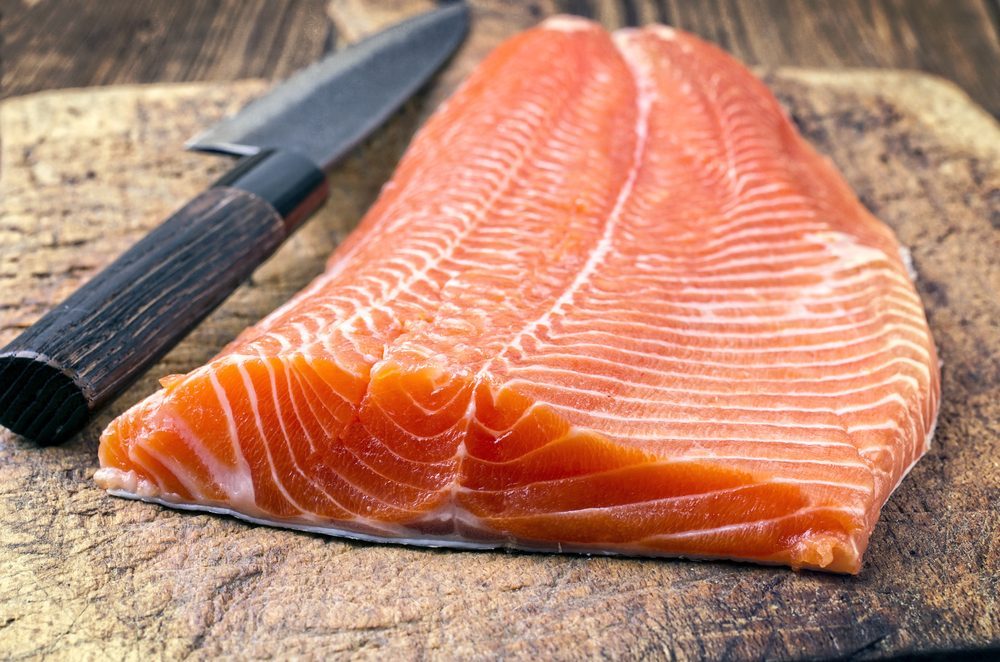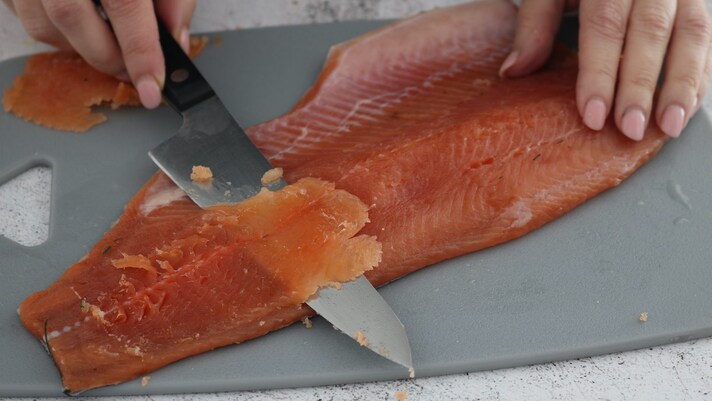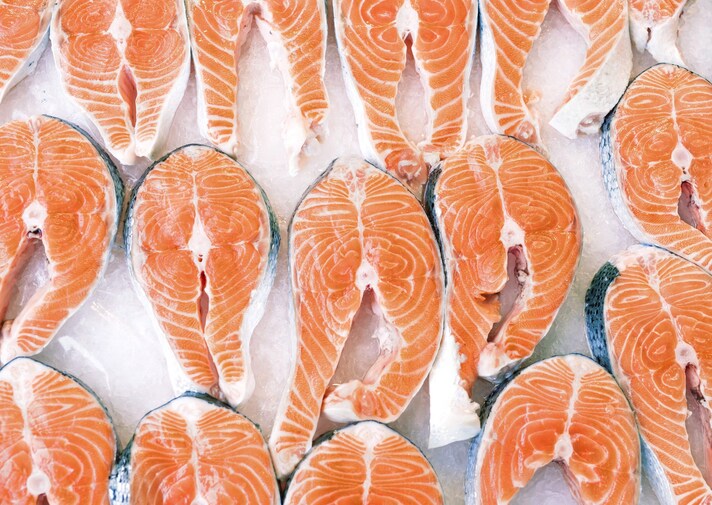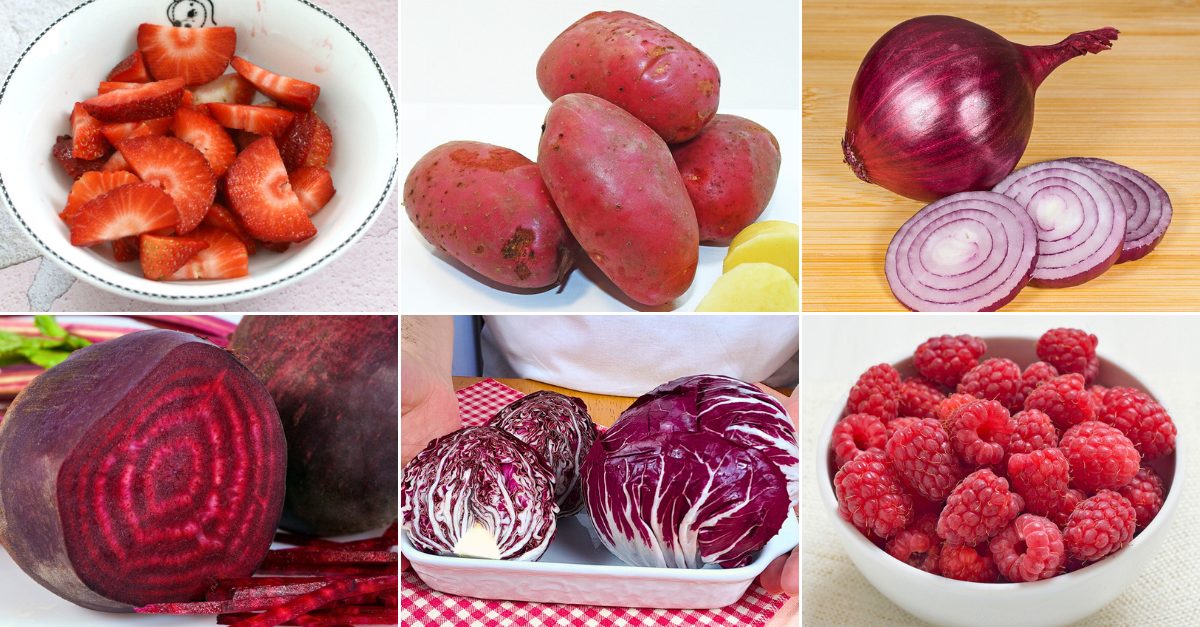The Power of Pink Salmon: A Nutrient-Packed Fish
Pink salmon is a nutrient-packed fish known for its rich omega-3 fatty acids, which support heart health, brain function, and youthful skin. Packed with protein, vitamins, and minerals, it offers a wide range of health benefits. From grilled fillets to salmon burgers, this mild-flavored fish is versatile and easy to incorporate into meals for a delicious, health-boosting option.
;Resize,width=742;)
Among the different types of salmon, pink salmon stands out for its light, mild flavor and abundance of essential nutrients. Known for being a rich source of omega-3 fatty acids, this vibrant pink fish not only supports heart and brain health, but it also offers a variety of health benefits that make it a great addition to any diet.
Why Choose Pink Salmon?
Pink salmon is often more affordable than its more well-known cousins like sockeye or king salmon, but that doesn’t mean it falls short in terms of nutrition. It provides a solid dose of omega-3s (which are essential for optimal health) and a wide range of other vitamins and minerals, including vitamin D, B12, selenium, and potassium.
1. Omega-3 Fatty Acids: Heart Health and More
Omega-3s (EPA and DHA) are essential fatty acids that play a crucial role in reducing inflammation, supporting heart health, and improving brain function.
Regular consumption of omega-3s from fish like pink salmon can lower the risk of heart disease, stroke, and may even help in reducing anxiety and depression.

2. Protein Powerhouse
Pink salmon is an excellent source of lean protein, which is essential for maintaining muscle mass, repairing tissues, and promoting healthy metabolism.
A 3-ounce serving of pink salmon provides about 22 grams of protein, making it an ideal food choice for active individuals and those looking to maintain or build muscle.
3. Rich in Essential Vitamins and Minerals
Pink salmon is loaded with vitamin D, which helps in calcium absorption for bone health and supports a healthy immune system.
It also provides B12, an important vitamin for red blood cell production, and selenium, an antioxidant that helps protect cells from damage.
Benefits of Pink Salmon
Incorporating pink salmon into your diet not only gives your meals a nutritional boost, but it can also support various bodily functions and help prevent certain diseases.
1. Supports Cardiovascular Health
Omega-3 fatty acids from pink salmon are known to reduce triglyceride levels, lower blood pressure, and improve arterial health. These effects significantly reduce the risk of developing heart disease.
2. Enhances Brain Function
Omega-3s also support brain health, boosting memory, cognitive function, and overall mental clarity. Pink salmon is a great food choice for anyone looking to improve focus and maintain mental sharpness as they age.

3. Promotes Healthy Skin
The omega-3s in pink salmon can help maintain skin moisture and reduce the risk of dry skin, wrinkles, and other signs of aging. These healthy fats also contribute to glowing, youthful skin.
4. Anti-Inflammatory Benefits
The anti-inflammatory properties of omega-3 fatty acids in pink salmon can help reduce inflammation throughout the body, which is associated with chronic conditions like arthritis, diabetes, and autoimmune diseases.
Recipe Ideas: Delicious Ways to Enjoy Pink Salmon
Pink salmon’s mild flavor and firm texture make it an ideal fish for a wide range of recipes. Here are some ideas to get the most out of this nutritious fish:
1. Grilled Pink Salmon with Lemon and Herbs
A simple yet delicious way to enjoy pink salmon is to grill it with fresh herbs, a squeeze of lemon, and a drizzle of olive oil. Serve it with roasted vegetables or a quinoa salad for a healthy, balanced meal.
2. Pink Salmon Salad
Flake the cooked pink salmon and add it to a salad made of mixed greens, avocado, cucumbers, and a light vinaigrette. Top with some toasted sunflower seeds for a crunchy texture and extra nutrients.

3. Baked Salmon with Garlic and Dijon
For a richer flavor, bake pink salmon fillets with a garlic and Dijon mustard glaze. The mustard adds a tangy punch that complements the salmon’s natural flavor. Serve with steamed asparagus or green beans for a nutritious meal.
4. Salmon Tacos
Use pink salmon as a filling for soft tacos. Flake the fish and add it to tortillas with cabbage slaw, fresh cilantro, lime, and a drizzle of yogurt-based sauce for a delicious and healthy twist on traditional fish tacos.
5. Salmon Burgers
For a fun alternative to regular burgers, make your own salmon burgers by mixing flaked pink salmon with breadcrumbs, lemon zest, herbs, and an egg. Grill them and serve them on whole-grain buns with your favorite toppings.
How to Select and Store Pink Salmon
When purchasing fresh pink salmon, look for firm, moist fillets that don’t have a strong fishy smell. If you’re buying canned pink salmon, choose wild-caught varieties with no added preservatives. Store fresh pink salmon in the refrigerator for up to 2 days, or freeze it for long-term storage.

Final Thoughts: A Nutrient-Dense and Delicious Choice
Pink salmon is more than just a delicious fish—it’s a nutrient-dense powerhouse that can support heart health, improve brain function, and promote glowing skin. With its mild flavor and numerous health benefits, it’s an easy and tasty way to increase your omega-3 intake. So next time you’re at the market, pick up some pink salmon and enjoy a meal that’s as nourishing as it is satisfying.
;Resize,width=767;)
;Resize,width=712;)
;Resize,width=712;)
;Resize,width=712;)
